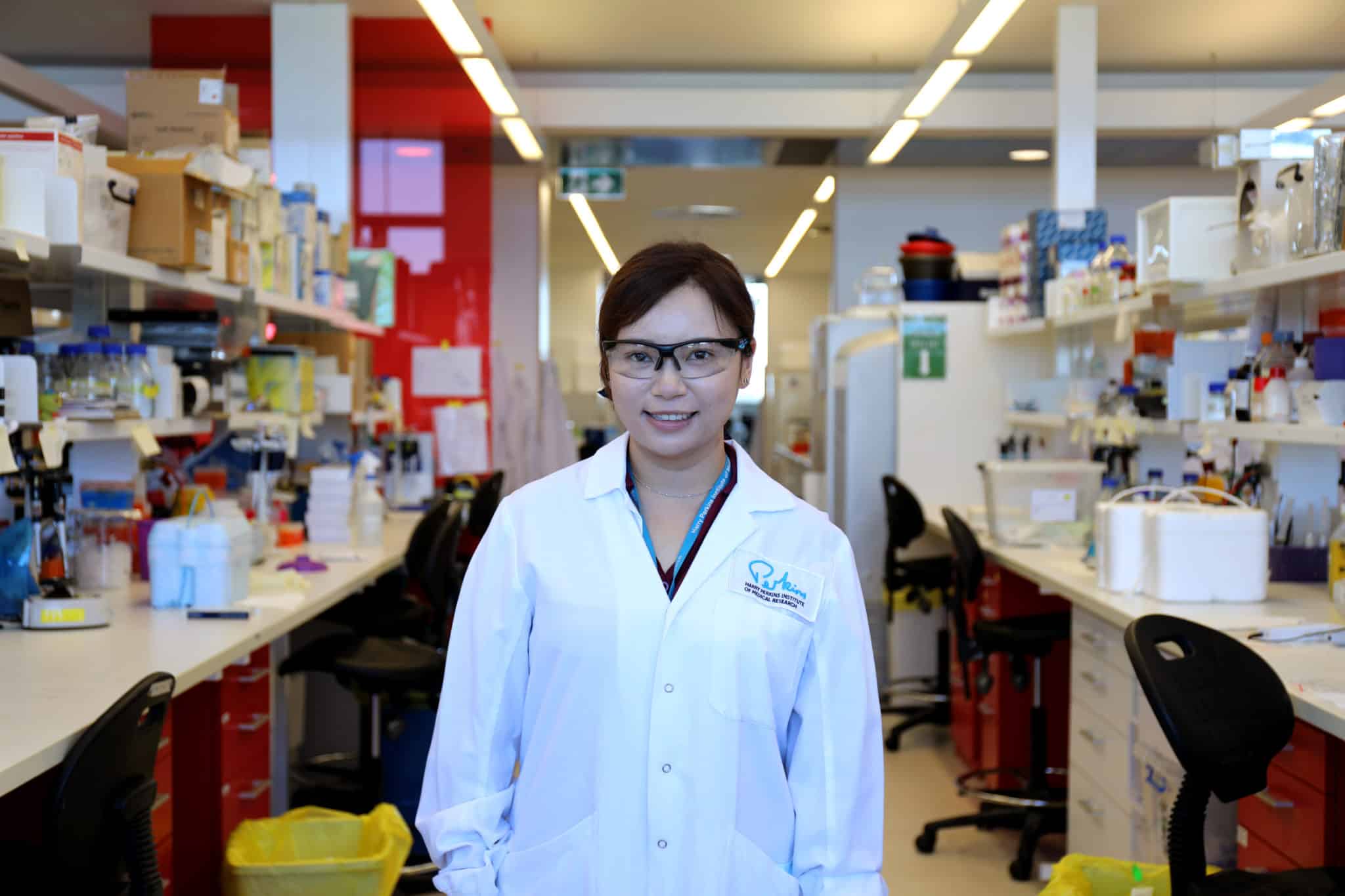
Researchers in the Perkins Cancer Epigenetics team are continuing their groundbreaking work into the use of honeybee venom as a powerful anti-cancer treatment.
In 2020, we announced that Perkins researchers had uncovered that honeybee venom could kill breast cancer cells, while leaving normal healthy cells essentially unaffected. This remarkable discovery showed that a specific concentration of honeybee venom can completely destroy cancer cell membranes within 60 minutes and induce 100% cancer cell death with minimal effect on normal cells.
The researchers went on to synthesise a key component in honeybee venom, called melittin, to continue their studies without impacting the honeybee populations.
Currently, Dr. Edina Wang has enthusiastically taken on this project, striving to improve the melittin compound and make it more effective by the addition of components that will enhance the way it recognises and targets cancer cells.
In addition to the breast cancer studies, Dr. Edina Wang has begun testing the targeted melittin on ovarian cancer cells and found that they are extremely effective with a six-fold improvement in anti-cancer outcome over the melittin alone.
The team is also looking into derivatives of honeybee venom to see if there are more components within the venom that might act as a powerful anti-cancer ingredient. There are hundreds of different components that make up the honeybee venom and while melittin is one of the most abundant and potent component, the researchers aim to produce the most effective combination of cancer cell targeting and kill rate.
The team has also discovered a protective mechanism from a honeybee component that keeps healthy cells unaffected by melittin. There is still a lot of research to delve into and to learn how to harness these discoveries, therefore your support is helping world class researchers move closer to solving these big and important problems.
Read the groundbreaking announcement from 2020 here.
